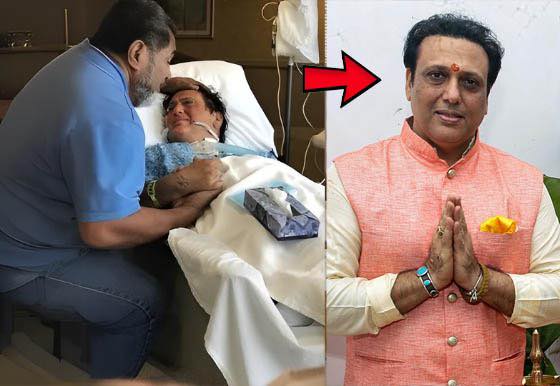Health insurance is a crucial tool for protecting young people from unexpected medical costs, providing both financial safety and access to necessary healthcare. As a young adult, you may be healthy and active, but accidents and illnesses can happen at any time. Health insurance helps cushion the blow of these unexpected events, preventing you from facing high medical bills that could be financially devastating. Here’s how:
1. Covering Emergency Medical Expenses
- Accidents and Emergencies: While you may be in good health, accidents (like sports injuries, car accidents, or falls) can result in sudden and expensive medical care, such as emergency room visits, surgeries, or diagnostic tests. Without insurance, the costs of these services could be overwhelming. Health insurance helps cover these unexpected medical expenses.
- Emergency Services: Health plans often cover emergency room visits and urgent care at a lower cost than paying out-of-pocket, depending on your deductible and coinsurance.
2. Preventing High Out-of-Pocket Costs for Serious Illnesses



- Chronic Conditions: If you develop a chronic condition (like asthma, diabetes, or mental health issues), ongoing treatments and medications can add up quickly. Health insurance can significantly reduce these costs by covering routine doctor visits, prescriptions, and therapies. Without insurance, you’d have to pay the full cost of managing your condition.
- Hospitalization: In the case of a serious illness or injury requiring hospitalization, having insurance means your plan will cover most of the costs, protecting you from astronomical bills.
3. Protecting Against High Prescription Costs
- Even if you’re young and generally healthy, prescription medications can be expensive, especially if you need ongoing treatment (e.g., for acne, mental health conditions, or allergies). Health insurance can help reduce the cost of prescriptions by covering a portion of the price, making medications more affordable.
4. Covering Preventive Care
- Free Preventive Services: Under the Affordable Care Act (ACA), many health plans are required to cover preventive services at no cost to you. These services include things like vaccinations, screenings (e.g., for cancer, high blood pressure, or cholesterol), and wellness checkups. These services help catch health problems early, potentially saving you from bigger medical costs down the road.
- Preventive care can also help you stay healthy by providing early warnings for conditions that might otherwise go undetected.
5. Reducing the Risk of Debt from Medical Bills
- Medical debt is one of the leading causes of financial strain in the U.S., particularly for young adults. Health insurance helps protect you from accumulating significant debt from unexpected healthcare expenses. Without insurance, a simple surgery or extended hospitalization could lead to thousands of dollars in debt that may take years to pay off.
- If you experience a serious health event, insurance provides the financial structure to help you manage the costs, making it easier to handle bills in a more manageable way.
6. Mental Health and Counseling
- Mental Health Services: Many young adults are facing mental health challenges (like anxiety, depression, or stress). Health insurance often covers mental health services, including counseling, therapy, and psychiatric medications. These services can be expensive without insurance, and going without can delay necessary treatment, worsening your health in the long term.
- Substance Abuse Treatment: If you or someone you know is dealing with substance abuse, insurance can also provide access to addiction treatment services and rehabilitation, which are costly without coverage.
7. Avoiding “Surprise” Out-of-Network Bills
- Health insurance can protect you from unexpected bills from out-of-network providers, which can be significantly more expensive. Even if you go to an in-network hospital, certain services (like anesthesia or a specialist) might be out-of-network, leading to unexpected charges. Health insurance provides financial protection by minimizing these surprise bills through its network agreements.
8. Financial Planning and Peace of Mind
- Predictable Costs: With insurance, you know your premium, deductible, copayments, and out-of-pocket maximums in advance. This makes budgeting and financial planning easier because you can anticipate how much you’ll need to spend on healthcare, rather than dealing with the uncertainty of how much a medical event might cost.
- Peace of Mind: Health insurance provides reassurance that if something goes wrong with your health, you won’t have to face a huge financial burden on top of recovering. This peace of mind allows you to focus on staying healthy without constantly worrying about the costs of care.
9. Access to a Wide Network of Providers
- Having health insurance gives you access to a broad network of doctors, specialists, and hospitals. This means you’re more likely to get timely treatment, reducing the risk of needing costly urgent care due to untreated health issues.
- Discounted Services: Insurance companies negotiate discounts with healthcare providers, which often results in lower costs than paying directly out-of-pocket.
Real-World Example:
Let’s say you’re a 22-year-old college student who sprains your ankle while playing soccer. You go to the emergency room for treatment, and they recommend an X-ray and follow-up physical therapy. Without insurance, the total bill for the ER visit, X-ray, and therapy could easily exceed $3,000. However, if you have health insurance, your plan may cover a large portion of those costs after you pay your deductible. You may end up paying only a fraction of the original bill, saving you from a potentially huge financial setback.
How to Maximize Your Health Insurance Protection:
- Know Your Coverage: Familiarize yourself with your plan’s details, such as your deductible, out-of-pocket maximum, network of doctors, and covered services. Knowing these details helps you avoid surprise medical bills.
- Use Preventive Services: Take full advantage of free preventive care offered by your insurance to stay healthy and catch potential health issues early.
- Stay In-Network: When possible, use doctors and hospitals that are within your insurance plan’s network to avoid extra out-of-pocket expenses.
- Keep Track of Your Medical Expenses: Be aware of how much you’ve spent toward your deductible or out-of-pocket maximum throughout the year. This can help you plan for upcoming medical expenses.
Conclusion:
Health insurance is an essential tool for young adults, providing a safety net against unexpected medical costs. Whether it’s an accident, illness, or preventive care, insurance helps you access necessary treatment without the financial burden that could otherwise disrupt your life. By understanding your insurance coverage and utilizing it effectively, you can stay healthy while protecting yourself from the high costs of medical care.




